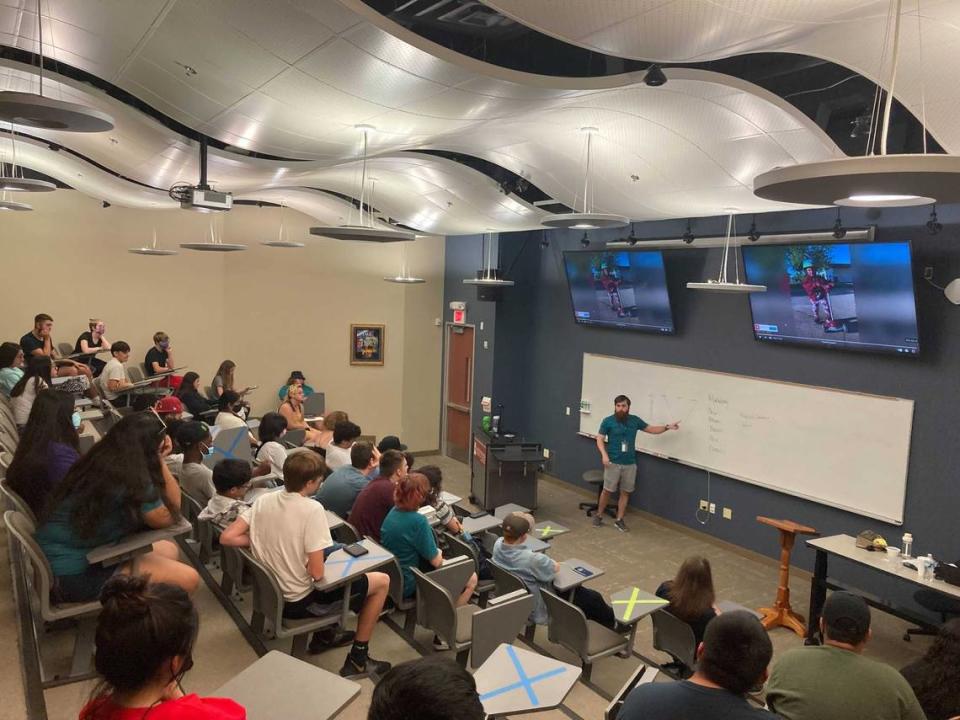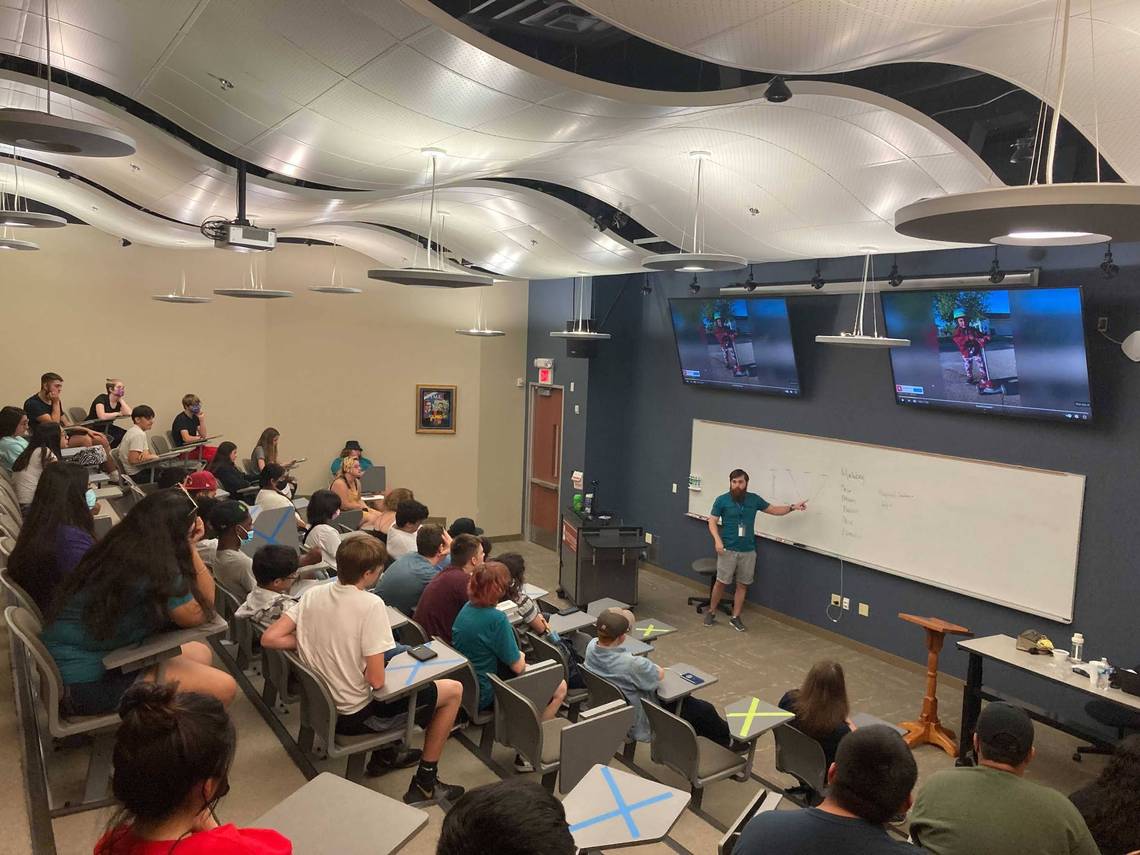Sometimes it can be hard enough to pay the light bill, much less find money for college tuition.
Now, she is a first-generation college graduate, receiving her degree in agriculture management from Tarleton State University in 2018.
And she works for the place that helped make college possible for her, Opportunity Resource Services.
The Cleburne-based nonprofit started 2010 with the goal of alleviating poverty in rural communities by providing more access to educational services and support for first-generation college students and children from disadvantaged backgrounds.
In other words, they believe everyone deserves a college education — and they are there to help make it happen.
Basically, they work to make sure folks know what they’re applying for, how to do it and where to go to get the right funding. They work with school counselors and other administrators. There’s money out there, but many people just don’t know where to go.
“Myself and my family are proof of how fundamental ORS is in helping a family break generational poverty,” Guillen said. “My parents, a low-income family, were not equipped or informed to help their children navigate through the college process nor help financially. Now my siblings and I have graduated with a bachelor’s degree and hold leadership positions within our jobs.”
Following her lead, all three of Guillen’s siblings graduated from high school and have attended college, studying engineering and accounting.

Opportunity Resource Services has helped over 14,000 achieve that goal.
When the nonprofit started, most federal education programs were for colleges in urban areas, according to CEO Dustin Phillips, who founded Opportunity Resource Services with James Jesse.
Phillips and Jesse are from disadvantaged backgrounds. Growing up in rural parts of Texas, they were the first in their immediate families to earn a bachelor’s degree.
“These formative experiences instilled a passion for education and a desire to help other individuals from similar backgrounds,” Phillips said.
Fighting generational poverty
Generational poverty is typically described as a family with at least two generations experiencing poverty. Phillips noted research indicates children who experience poverty are far more likely to continue to experience poverty in adulthood.
“At ORS, we have a saying, ‘Education is the fastest and surest path out of poverty,’” Phillips said.
Phillips also noted the dialogue surrounding post-secondary education is shifting. The emphasis is moving beyond the traditional “four-year” college degree.
“There’s a growing recognition of the value in alternative forms of education and skill development, which we call credentials of value,” he said. “This includes vocational training, learning computer programming languages, and specializing in areas like industrial and robotics maintenance. These paths can lead to sustainable employment and are often more aligned with current job market demands.”
Phillips stresses there is a lot of grant money to help pay for college. However, he added that even if a student can afford the cost of college, they might have significant financial obligations holding them back.
“Many of our clients live at home and help their parents, or they have started a family of their own, sometimes both,” he said. “Luckily, post-secondary programs have become more flexible, offering online, weekend, and night courses.
“However, college students must still pay their bills and feed their families. Working full-time or multiple part-time jobs while raising a family and trying to earn a degree is very difficult for anyone.”
Navigating the system
Most Opportunity Resource Services clients will be the first in their immediate family to obtain a bachelor’s degree. Phillips said these barriers contribute to a lack of knowledge about the system, including how to pay for college, how to apply, how to select classes or register, or how to read a degree plan.
“Navigating without the knowledge, expertise, or family support is very intimidating,” he said. “This is one of the most common challenges our people face. They do not know how to get started or what to do.”
Bethany Garcia is a former Opportunity Resource Services student and is now with the team as a high school program coordinator. She was in the Upward Bound Math and Science program at Alvarado High School from 2013-15.
“As a first-generation and low-income student, I desperately needed exposure to just how many possibilities there were for me, and ORS did that and more,” she said. “I love working with the students and helping them realize how many careers they can enter with different degrees. I love working with seniors as they receive their scholarships or award letters and realize college is accessible to them even after being told otherwise.”
Serving many
In 2016, Opportunity Resource Services established the Johnson County Educational Opportunity Center, thanks to funding from the Department of Education. The center serves over 1,000 Texans annually, providing career mentoring, college application support, financial aid advising, and GED preparation throughout the county.
In 2021, Opportunity Resource Services established Educational Opportunity Centers in Dallas County and Tarrant County.
Opportunity Resource Services serves over 2,700 vulnerable and at-risk youth and adults between the three centers each year. Most of the clients are first-generation college students and individuals from disadvantaged backgrounds.
Between all nine programs at ORS, they serve over 3,084 vulnerable and at-risk youth and adults each year. Roughly two-thirds of the clients are first-generation college students and individuals from disadvantaged backgrounds.
“I had a moment in high school that felt like college was not a choice for me,” Guillen said. “My parents migrated here from Mexico with little to no education, finances were always a worry at home and my community and school had little to no resources available to help guide me.
“In my sophomore year, ORS came to my school with their first Upward Bound College Readiness Program and I knew that was the right program for me to join and learn about my post-secondary options after graduation.”
